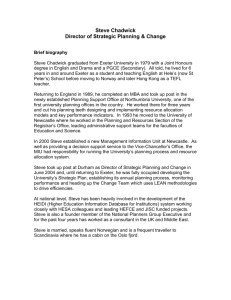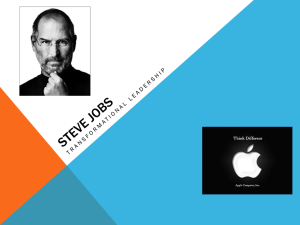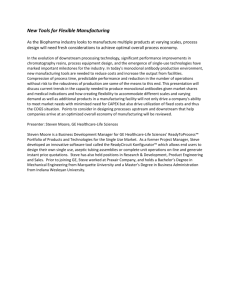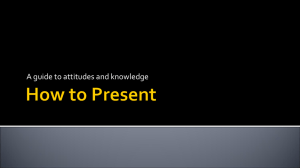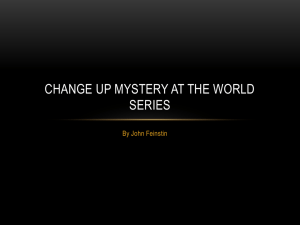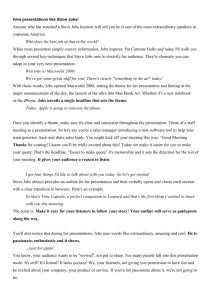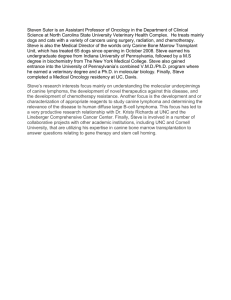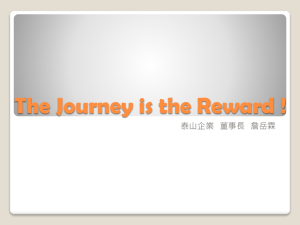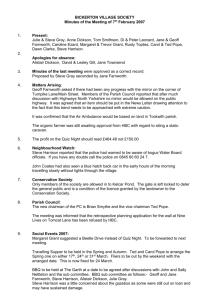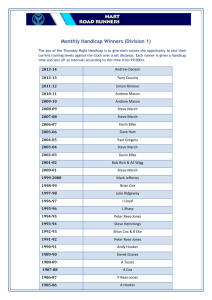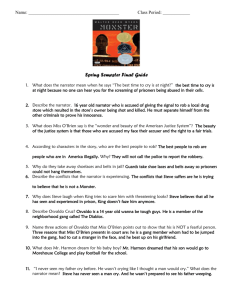What Can I Learn from Steve Jobs
advertisement
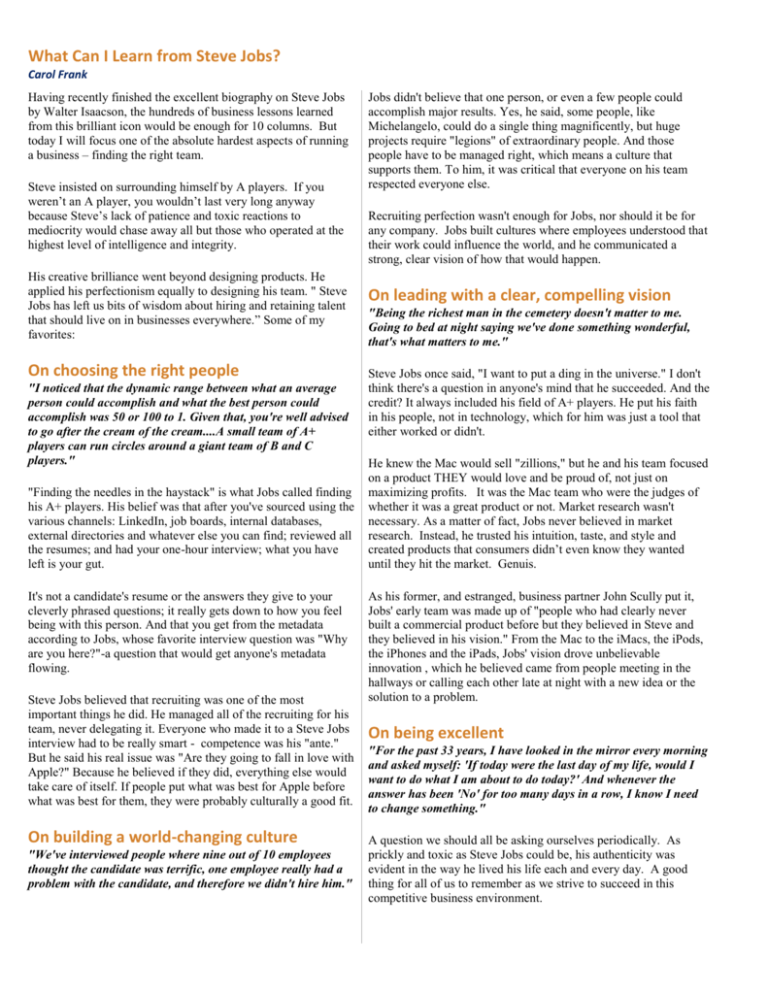
What Can I Learn from Steve Jobs? Carol Frank Having recently finished the excellent biography on Steve Jobs by Walter Isaacson, the hundreds of business lessons learned from this brilliant icon would be enough for 10 columns. But today I will focus one of the absolute hardest aspects of running a business – finding the right team. Steve insisted on surrounding himself by A players. If you weren’t an A player, you wouldn’t last very long anyway because Steve’s lack of patience and toxic reactions to mediocrity would chase away all but those who operated at the highest level of intelligence and integrity. His creative brilliance went beyond designing products. He applied his perfectionism equally to designing his team. " Steve Jobs has left us bits of wisdom about hiring and retaining talent that should live on in businesses everywhere.” Some of my favorites: On choosing the right people "I noticed that the dynamic range between what an average person could accomplish and what the best person could accomplish was 50 or 100 to 1. Given that, you're well advised to go after the cream of the cream....A small team of A+ players can run circles around a giant team of B and C players." "Finding the needles in the haystack" is what Jobs called finding his A+ players. His belief was that after you've sourced using the various channels: LinkedIn, job boards, internal databases, external directories and whatever else you can find; reviewed all the resumes; and had your one-hour interview; what you have left is your gut. It's not a candidate's resume or the answers they give to your cleverly phrased questions; it really gets down to how you feel being with this person. And that you get from the metadata according to Jobs, whose favorite interview question was "Why are you here?"-a question that would get anyone's metadata flowing. Steve Jobs believed that recruiting was one of the most important things he did. He managed all of the recruiting for his team, never delegating it. Everyone who made it to a Steve Jobs interview had to be really smart - competence was his "ante." But he said his real issue was "Are they going to fall in love with Apple?" Because he believed if they did, everything else would take care of itself. If people put what was best for Apple before what was best for them, they were probably culturally a good fit. On building a world-changing culture "We've interviewed people where nine out of 10 employees thought the candidate was terrific, one employee really had a problem with the candidate, and therefore we didn't hire him." Jobs didn't believe that one person, or even a few people could accomplish major results. Yes, he said, some people, like Michelangelo, could do a single thing magnificently, but huge projects require "legions" of extraordinary people. And those people have to be managed right, which means a culture that supports them. To him, it was critical that everyone on his team respected everyone else. Recruiting perfection wasn't enough for Jobs, nor should it be for any company. Jobs built cultures where employees understood that their work could influence the world, and he communicated a strong, clear vision of how that would happen. On leading with a clear, compelling vision "Being the richest man in the cemetery doesn't matter to me. Going to bed at night saying we've done something wonderful, that's what matters to me." Steve Jobs once said, "I want to put a ding in the universe." I don't think there's a question in anyone's mind that he succeeded. And the credit? It always included his field of A+ players. He put his faith in his people, not in technology, which for him was just a tool that either worked or didn't. He knew the Mac would sell "zillions," but he and his team focused on a product THEY would love and be proud of, not just on maximizing profits. It was the Mac team who were the judges of whether it was a great product or not. Market research wasn't necessary. As a matter of fact, Jobs never believed in market research. Instead, he trusted his intuition, taste, and style and created products that consumers didn’t even know they wanted until they hit the market. Genuis. As his former, and estranged, business partner John Scully put it, Jobs' early team was made up of "people who had clearly never built a commercial product before but they believed in Steve and they believed in his vision." From the Mac to the iMacs, the iPods, the iPhones and the iPads, Jobs' vision drove unbelievable innovation , which he believed came from people meeting in the hallways or calling each other late at night with a new idea or the solution to a problem. On being excellent "For the past 33 years, I have looked in the mirror every morning and asked myself: 'If today were the last day of my life, would I want to do what I am about to do today?' And whenever the answer has been 'No' for too many days in a row, I know I need to change something." A question we should all be asking ourselves periodically. As prickly and toxic as Steve Jobs could be, his authenticity was evident in the way he lived his life each and every day. A good thing for all of us to remember as we strive to succeed in this competitive business environment. Carol Frank of Boulder, CO, is the founder of four companies in the pet industry. As a Managing Director at SDR Ventures Investment Bank, Carol leads the team in executing pet industry transactions including M&A, capital formation and strategic advisory services. She is also the owner of BirdsEye Consulting, the consummate source for pet sector consulting expertise. She can be reached at carol@carolfrank.com
